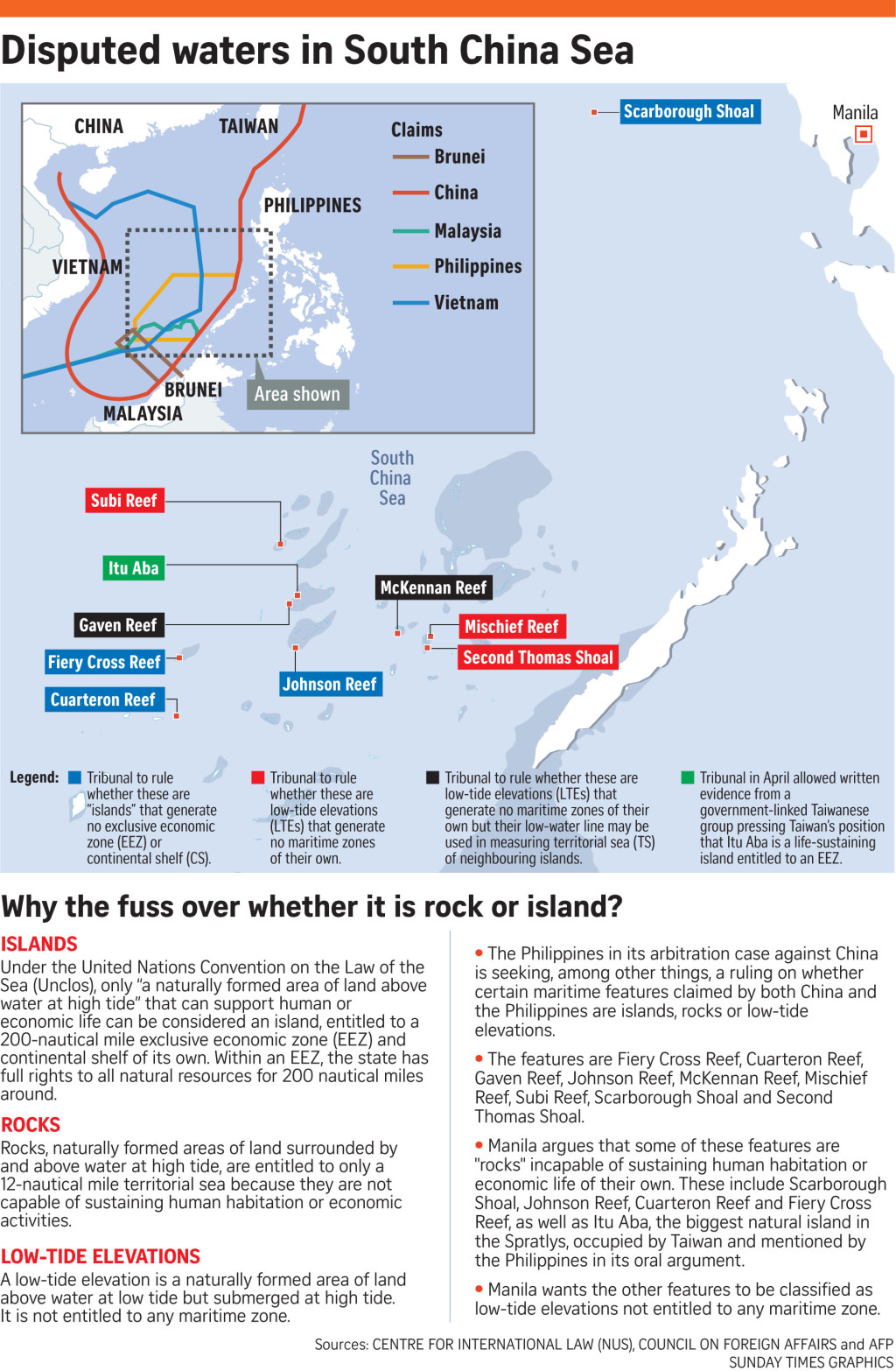Japan brokering G-7 joint statement on Hague ruling

This photo, taken on May 11, 2015, shows land reclamation on Panganiban Reef in the Spratly Islands in the South China Sea. AP FILE PHOTO
Japan is brokering a joint statement on the South China Sea ruling with its counterparts in the Group of Seven (G-7) advanced economies as part of a “proactive diplomacy” drive, though its own reaction to the verdict tomorrow (July 12) may be muted.
Local media reports last week said the G-7 is expected to issue the statement – the group’s third on maritime security since April – to pressure Beijing to respect the decision and follow international law and norms in settling disputes.
China has refused to take part in the arbitration brought against it by the Philippines over its expansive claims in the South China Sea and has said it will not recognise the ruling.
Countries in Southeast Asia have a positive track record of referring disputes to the international legal process and abiding by the rulings, analysts have said.
One of these is the dispute between Singapore and Malaysia over Pedra Branca, an island 50km off the Singapore coast.
Although Singapore had possession of the island, it agreed to arbitration at the International Court of Justice, which in 2008 awarded sovereignty over the island to Singapore. Both countries abided by the outcome, allowing them to continue to work together.
In the current case before the Permanent Court of Arbitration, Japan is not a claimant state in the South China Sea, which is a vital waterway for global trade. But it sees the increasing Chinese military might as a threat and, to counter this, it has pledged naval support to Vietnam and the Philippines.
Dr. Masashi Nishihara, president of Japan’s Research Institute for Peace and Security, noted that Tokyo, as leader of the G-7 this year, is taking efforts “to bring its G-7 counterparts in line with Asean allies.”
He said: “Before the G-7 meetings, some of the European countries did not take any particular interest in the South China Sea, but since then they have begun to take greater interest.”
France raised some eyebrows at last month’s Shangri-La Dialogue security forum in Singapore when it proposed that European navies coordinate patrols in Asian waters to reinforce a rules-based maritime order.
Japan is embroiled in a separate dispute with China over islets in the East China Sea.
Tomorrow’s decision follows Chinese allegations last week – which Japan has vehemently denied – that two Japanese fighter jets had taken “provocative actions” at high speed near a pair of Chinese fighter jets over the East China Sea.
But Dr. Ryoko Nakano, who teaches international relations at Japan’s Kanazawa University, noted that Japan may keep its response low-key for two reasons.
First, it remains uncertain how recently elected Philippine President Rodrigo Duterte will deal with the decision and Japan “does not want to look overexcited.”
Dr. Nakano also noted that Japan has resumed Antarctic whaling in spite of an international court ruling for it to cease such actions.
“The Japanese government wants to keep space for questioning the court decision when necessary,” she said.
“But Japan will probably repeat its basic stance – the territorial dispute should be dealt with in accordance with the ‘rule of law’.”
RELATED STORIES
Case lights up oldest tribunal in the world
UN law of the sea lays down the rules for planet’s oceans
RELATED VIDEOS
For comprehensive coverage, in-depth analysis, visit our special page for West Philippine Sea updates. Stay informed with articles, videos, and expert opinions.
